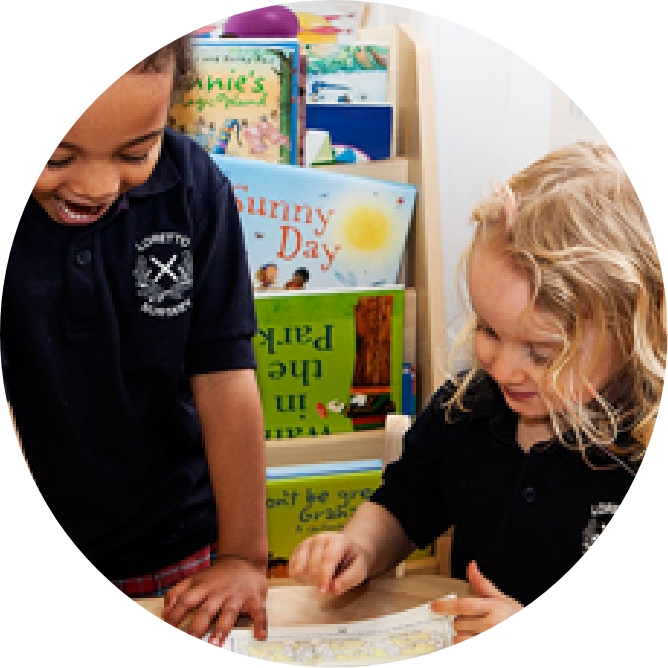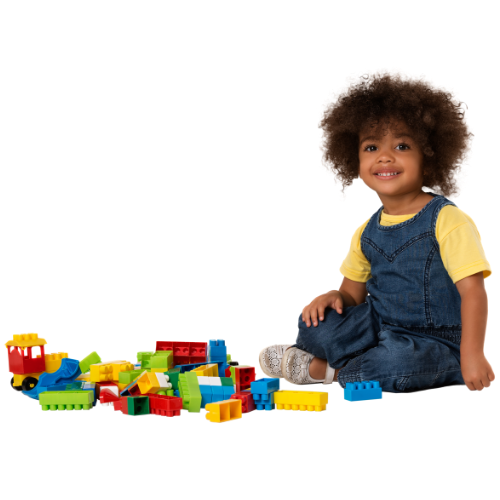Happitots Nursery, Bishopbriggs has been moved to Thrive Childcare. Visit Thrive Childcare to view more.
Welcome To Our Nursery at the heart of Bishopbriggs
Contact Us
About Us
Here at Happitots Bishopbriggs we offer quality Childcare and Early Education for children from 12 weeks to 5 years of age. We also offer Out of School Care for children from 5 to 12 years of age.
Our Nursery is a large detached house located in a quiet cul-de-sac within a residential area of Bishopbriggs, Glasgow. Our convenient location has quick links to the motorway and is 10 minutes walking distance from Bishopbriggs Train Station, making us ideal for commuters. Find Us.
Playrooms within our nursery are generously proportioned, carefully planned and extensively resourced to create inspiring learning environments in which children can grow and learn with confidence. Each playroom has access to outdoor play areas offering the opportunity for regular outdoor learning opportunities across all areas of the curriculum.
Our nursery has been an established and respected Centre for Early Year’s Care in Bishopbriggs for over a decade and has developed a strong reputation for delivering quality and meeting the needs of individual children and their families. We have won local and national awards in recognition of our exceptional quality standards. To have a read of our parent reviews on Day Nurseries click here.
Contact Us
Opening Hours
- Monday7:30am to 6pm
- Tuesday7:30am to 6pm
- Wednesday7:30am to 6pm
- Thursday7:30am to 6pm
- Friday7:30am to 6pm
- SaturdayClosed
- SundayClosed
- Sessions Available: Morning, Afternoon & Full Day,Full Week
- We are open for 51 weeks of the year. We close over Christmas & New Year.
We accept all childcare vouchers and offer 3-5 year old funding. Our spaces can fill very fast so we do recommend you enquire as early as possible to ensure you get the sessions and start date you require.
To get a real feel for our nursery, we would highly recommend coming to visit our nursery and see for yourself! Our Nursery Manager would be delighted to give you a guided tour, introduce you to our staff and answer any questions you may have. If you would be interested in arranging a viewing, simply call us on 0141 771 2836 or complete our book a viewing form to confirm your viewing.
Contact Us
"*" indicates required fields

Our Unique Features
- Icon3-5 Year Old Funding
- IconDiscounts available inc. Emergency Services.
- IconWell-established with qualified and experienced nursery practitioners
- IconClose links to M8 and M80 motorways, bus routes, Bishopbriggs train station
Reviews
I have just had my daughter enrolled in this nursery, they have not only helped her but given me the emotional support I required. Staff are very good with her. I love the different age rooms for the children to get all the stimulation required for the different age groups. Can’t recommend this nursery highly enough, the staff are friendly and knowledgeable. Thank you making this transition as easy it can be.
– Kimberly, Parent – Google Review
Our son absolutely loves going to nursery at Happitots. The staff are fantastic and we couldn’t be happier with them. They have all sorts of activities for the children and access to a private garden with bikes, toys and climbing frames. There’s lots of opportunities for the children to take part in extra activities too- like drama and football. The staff are very accommodating and go out of their way to help whenever you need it. I highly recommend Happitots!!
– Jacqueline, Parent (Google Review)
I have worked for this company for nearly 18years and when I had serious health problems the support I received and continue to receive is truly amazing and way beyond expectations.
Happitots Bishopbriggs is like a family, the staff are kind, caring and nothing is too much for the children and families. My girls have been attending since they were 6months old, one is 9yrs and comes to ASC and still talks about some of the things she learned at nursery. My youngest is 3yrs and loves the shooting stars room. Both girls adore all the staff and you can tell the staff truly care for them and all the other children!
– Jodi, Associate (Google Review)
Top 20 Nursery Group for 2020
We are thrilled to hold a number of awards and accreditations including; Silver Status Eco School, Nursery World Award Winner, NMT Nursery Group of the Year 2018, Day Nurseries Top 20 Nursery Group in the UK 2020, Childsmile Dental Scheme and Investors In Young People Gold Practice Award.